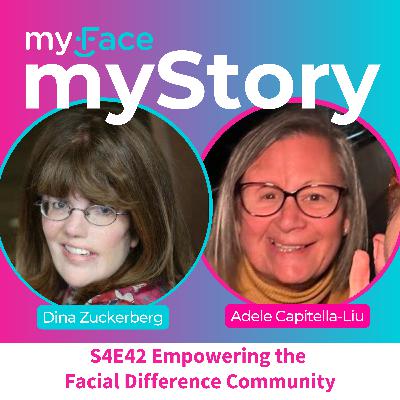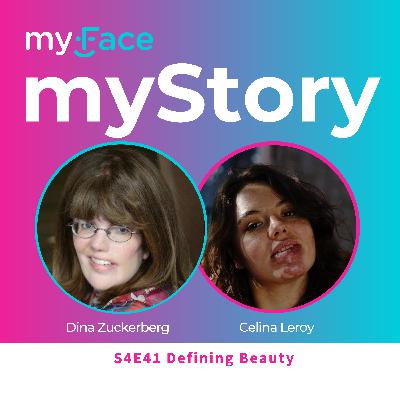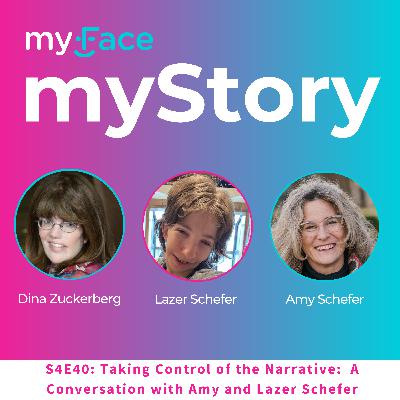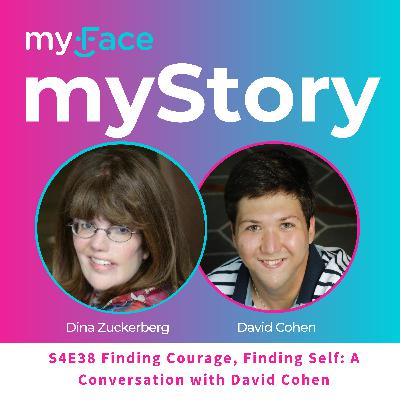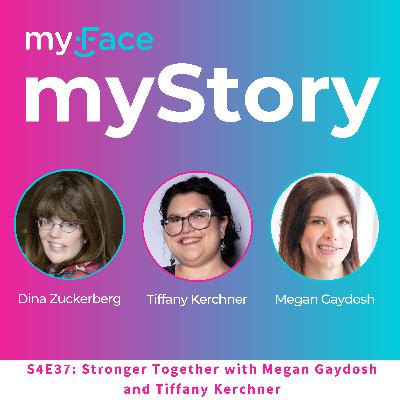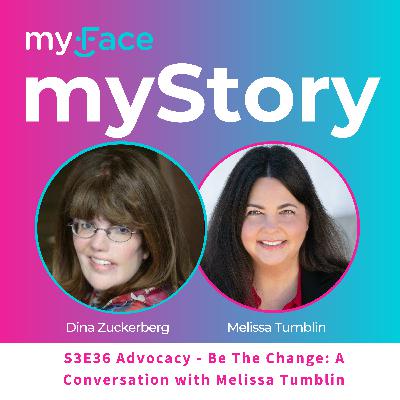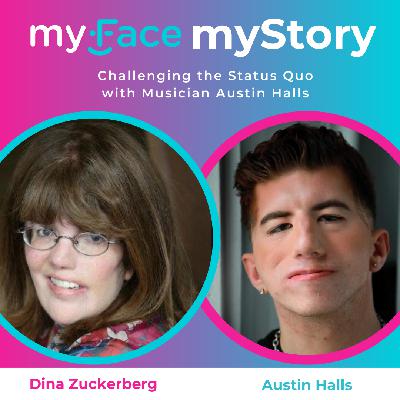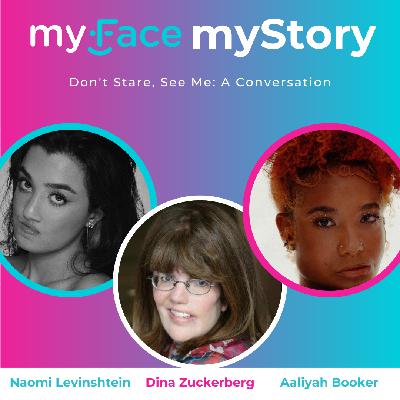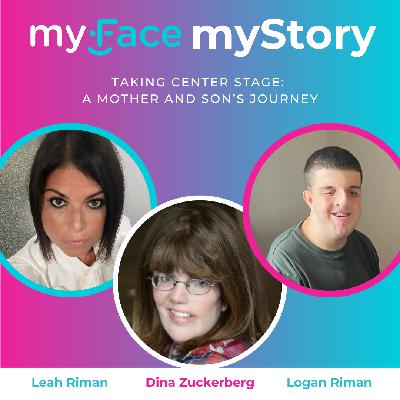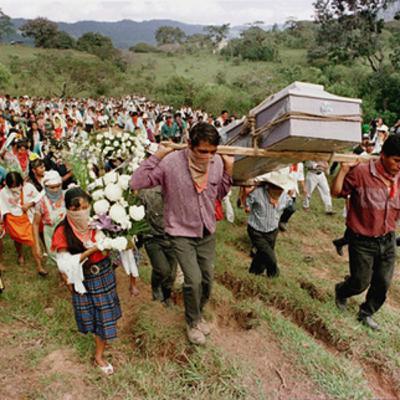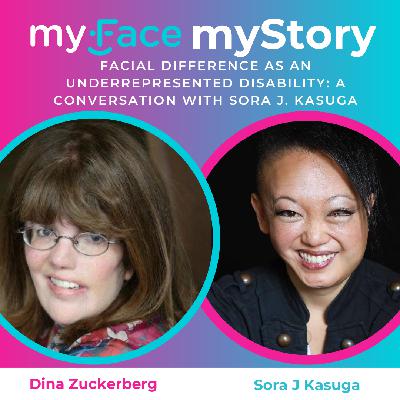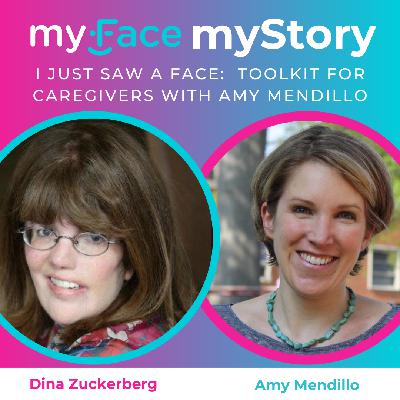Rebuilding a Life After Facial Cancer: A Conversation with Kathleen Watt
Description
On this month's myFace, myStory podcast episode, host Dina Zuckerberg is joined by Kathleen Watt, an opera singer on some of the biggest stages whose life changed when she was diagnosed with bone cancer in her face. She will speak about her memoir, REARRANGED where she writes about coming face-to-face with mortality, disfigurement, having her face reconstructed, and the meaning and uses of beauty. REARRANGED is a tale of letting go to hold on, of putting old pieces to new uses—and of the unlikely arrangements that make it all work out.
- [Narrator] Welcome to "myFace myStory, voices from the craniofacial community" with your host Dina Zuckerberg.
- Hello and welcome to "myFace myStory, voices from the craniofacial community." Whether you're watching on YouTube or listening on Apple Podcasts, click Subscribe now, so that you'll never miss a future episode. And if you're a fan of "myFace myStory," rate and review the program on Apple Podcasts, so that we can get our message of inclusivity and empowerment to more people. I'm your host, Dina Zuckerberg, the director of Family Programs at myFace. I was born with a cleft lip, a hearing loss, and no vision in my left eye. "myFace myStory" is about people like us being seen and heard, about sharing stories within the cranial facial community and with others. Today I will be joined by Kathleen Watt. Kathleen Watt sang principal roles with various opera companies and in the extra chorus of New York's Metropolitan Opera, before her singing career was severely ended by osteogenic sarcoma, bone cancer in her face. She recently wrote her memoir "Rearranged," which tells of leaving the operatic stage for a starring role opposite the Big C. Bone cancer in her cheek, ended her career and brought her face to face with mortality, disfigurement, the meaning and uses of beauty, and a lot of leftover pieces. "Rearranged" is a story about letting go to hold on, of putting old pieces to new uses, and of the unlikely arrangements that make it all work out. Since retiring from performing, she has written frequently on performing arts and cultural issues, including features, profiles, and essays. As a writer and cancer survivor, Kathleen has collaborated with doctors and artists on a range of projects, including an appearance on a BBC Four series about facial disfigurement. Formerly an assistant art director in publishing, Kathleen attended Rhode Island School of Design, Brown University, and Brigham Young University, earning a double BFA in art and music, with postgraduate studies in opera performance at Boston University. Kathleen now writes from a windswept hay farm in the Catskill Mountains of New York, where she resides with her partner, 10 chickens, three dogs, and on occasion her two grown stepchildren. Welcome, Kathleen. I really look forward to our conversation.
- Thank you, Dina. It's a delight to be here.
- Yes. So why and how did you become an opera singer?
- Well, my mother was a classically trained singer, so I grew up with the sound of that kind of a voice in my ear early on. But I personally, I took a long way around. I went to several different schools, as you just recounted. I got a BFA in art and a minor in voice, but I chose to prioritize singing, because it has, you know, supposedly it has an expiration date. And also with serious singing, I had to come to the grudging understanding that the only way to get paid was to get hired by a company, so that meant opera. But once I got into it, I was really hooked on grand opera, One of the things I liked about it, besides the comradery of other musicians and the music and the lights and the costumes and everything, was the way that operatic singing is almost like an athletic activity. It's full-bodied, muscular and musical and lyrical all at the same time. So I really enjoyed all of that, so I was hooked. So I had to get a job.
- Right, right. I fell in love, the first opera I ever saw was "Madam Butterfly," and I fell in love with the opera after that.
- Oh, that's one that will make you fall in love.
- Yes. So take us back to the day when you learned that you had bone cancer in the face. What was going through your mind?
- Well, my tumor was identified by my dentist, as often happens with head and neck cancers or serious head and neck conditions. I asked my partner, Evie, to help me identify a bump in the gum line over my back teeth, and we agreed that I should ask my dentist about it. But he sent me to an endodontist who thought it might be a condition requiring a root canal, and then he sent me to an oral surgeon, who thought it might deserve a biopsy. So by March, I had my diagnosis, and I first heard the news on my answering machine. It's not something you're ever really prepared for, even if you've seen it in others and you know it might be coming. We took one step at a time as it was revealed to us, what else can you do? And I had surgery in April, which coincidentally I had my surgery in April on the very same day that I was scheduled to audition with the Met for my full-time position. So it was very karmic in that way.
- So as you said, you were an opera singer and then you auditioned for roles. How did preparing for your surgery, especially your first surgery, how have that experience of auditioning for the offer, how did that experience help you in your medical journey, if it did indeed, helped you?
- Yeah, that's a great question. And it came upon me, the answer to your question came upon me as I was writing. As an opera singer, of course, my diagnosis was cataclysmic. It put my career plans in jeopardy, and my instrument, that is my body, was at risk. And it was my whole reason for being. At the moment I was in mid-career, the diagnosis came right in the middle of the operatic season. So I was more or less in performer mode as we took on the cancer. And I remained, so actually, for a couple of years. And my very first questions when I heard about the diagnosis, or when I first got my tests and I knew what was in the future for me, was could I make it back to the season? Could I make it back and have enough time to practice and be ready for the season? I would miss the second half of the current season, but could I get back for this for the next season, you know? So I was in performer mode, and in retrospect, as I was writing, I realized that I kind of, I prepped for my role as a patient in much the same way that I might prepare to sing a character role. In fact, right from the outset, because I learned of my hiring at the Met by way of an answering machine message, which the maestro told me that I had missed my first rehearsal, which nobody told me about, and I would be fired if I missed the next one.
- Right.
- Similarly, I learned about my cancer on an answering, a telephone answering machine message, it's so ancient, I can't even remember how to say it. But this time from my oral specialist, and he was saying it never was a dental problem, that was a waste of time, it's cancer, and I might die if I don't find a head and neck surgeon. So, they were two very, you know, distinctly different embarkations on a big adventure, so.
- Right, right.
- And then I basically took on the responsibility of the role I had to play as a patient and learned everything I could about it, and attended coachings, consultations, and then I showed up for the downbeat. And then once the curtain is up, just as in a performance, there's no way to go but forward.
- Right, right.
- Go on.
- That's what you had to do, right? You had to go forward through the whole thing.
- Yeah, yeah. And in retrospect, I really think a lot of my training as a singer gave me resources that I would come to rely upon. And it's not unique to singing, but anybody who becomes a, I think anybody who becomes a hostage of the hospital situation in, you know, whatever their situation is, brings to it all of their resources. I mean, I had physical fitness and patience, I think, as a long time student of classical voice, but whatever it is, you have a lot of the resources within you to meet and sustain the ordeal that seems like something completely novel. Until you recognize that you bring your whole self to it, and very often you're more equal to it than you expect.
- Right. So what or who gave you strength to get through, I believe it's 32 surgeries, to get to where you are today?
- Yeah, 32 with general anesthesia, not counting the little ones.
- Okay.
- Well, I have to credit my support system. Of course, there's nothing more powerful or sustaining than a strong support system. I had my siblings, and my primary caregiver was my partner, Evie, who was absolutely essential. And she was never able to breathe easy until the whole thing was over. And we never knew how long it was going to be. So we were kind of in an isometric holding pattern for a decade. And she as a mate, and the role she played, the role of the caregiver, are actually major characters in the book. But they all showed up, my siblings and my partner, and because they kept showing up, I felt I ought to make it worth their while, I guess. It gave me an incentive to keep showing up. If this was worth it to them, I better make it worth it for them to come. And I will add to a certain extent that we entertained each other. I mean, nothing is more important than a committed support system. But I will also add that we should never underestimate the value of humor.
- Absolutely.
- And there's science behind that now too. As I understand it, nothing releases the brain's healing hormones, the endorphins, the dopamine, that everybody's always trying to get from somewhere, there's nothing that releases it like a good joke. Cracking good laugh. And that's something you can do for yourself. Have yo





